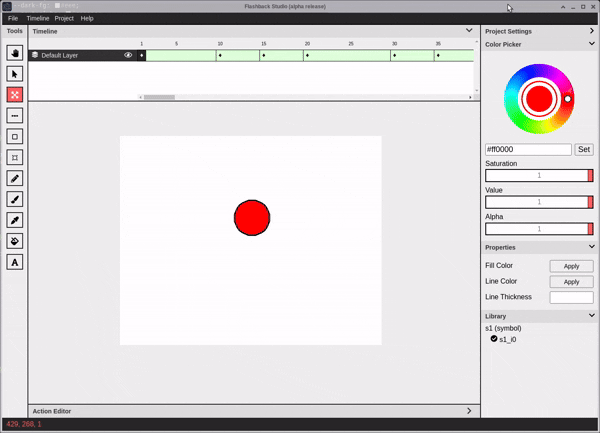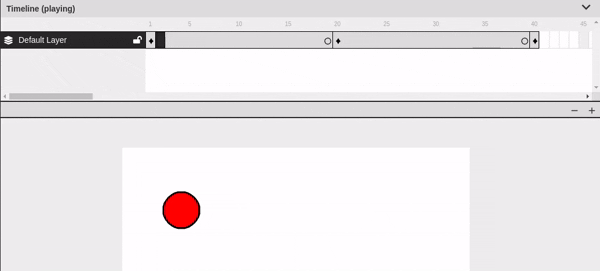Flashback studio
Drawing mode activated.
For nearly 6 months I've been hacking on this retro throwback. Allow me to introduce my latest creation: Flashback Studio.

Josh, what have you done?
I know, I've created this monster of a drawing program entirely from scratch. It's got awesome features though! Flashback Studio allows you to create and share interactive content. It's a drawing program where timelines and scripting* are first-class components. When you draw, you're not just drawing a single image. You're creating something that exists throughout time as well. With this paradigm, you can tween position, rotation, scale, color, and other properties to bring your vision to life.
The best part is that your final creation will be 100% comaptible with pure HTML5/JavaScript and can run on any modern browser. For example, here's some bouncing balls generated with Flashback Studio.
(*scripting is not supported yet, but will be soon)
Why did you make it?
This is an homage to my favorite drawing tool from the 90s. When I was a youngster, I learned how to think creatively (and improve my programming at the same time) all because of access to these kinds of tools. Sadly though, the world moved on. And in its wake were the graves of minigames and animations alike. I can confidently say we lost a valuable resource, so naturally, I am going to bring it back.
In the early 2000's my friend had been taking calculus courses at the local college. He wanted to visualize what was happening under the graph so he made a little interactive widget which ultimately helped explain the concept. This was even submitted as homework! Sadly, creating this kind of content in the year 2025 is far more difficult for the common denzien of the internet. I hope to provide a platform that lets creatives explore their ideas with very little overhead, just like the days of yore.
What can it do?
This project is an early access tool. It's riddled with bugs and usability quirks, but that's because I'm just getting started! Already you can do the following:
- Create animations
- Package your creations for the web
- Perform basic tweening (color, position, scale, rotation)

But there's so much more that I want to add. Check out the roadmap here if you're interested.
Download!
And of course, if you want to try it out - maybe leave some feedback - head on over to the download page to access the pre-compiled binaries. You can check out the source code too, if you want.
So, what next?
I plan to write technical blog posts about some of the fun challenges I've already had to face. Challenges like: doubly-connected-edge-lists (DCEL), planar graphs and subdivision, linear algebra and compounding matrices, etc. There's a lot of tech involved and I can't wait to share what I've learned. This project has been just, months of reading research papers. Folks have been thinking about these computing algorithms since the birth of pong!
This project touches on so many different skillsets. Community is what makes open-source successful. So if you're interested in joining the fun, head on over to the contributing page to learn more.
Thanks for reading!